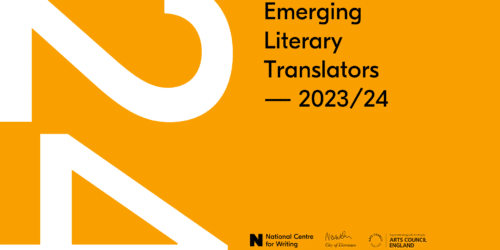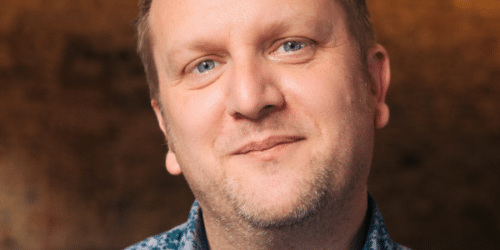
A provocation by writer and psychologist Charles Fernyhough, first presented at the Edinburgh International Book Festival, August 31st, 2015
Open a book and a chorus of voices starts back at you. I remember being asked as a bookwormish child whether I could hear a novel’s characters speaking in my head. ‘I hear them,’ I enthused (my own eleven-year-old son recently said the same). With a sheaf of printed pages in front of her, a reader settles in for an extraordinary internal performance. It’s an everyday happening that illustrates a deep mystery of consciousness: how someone sitting alone in a room, ostensibly doing nothing but silently turning the pages, can be hearing the voice of an unreliable narrator, listening into conversations that never happened, conversing with the dead.
I want to do more than propose that fiction transports you into a different reality: it can certainly do that. Rather, I’m interested in how reading for pleasure can have specific effects of something like an auditory quality. It leaves its sounds resonating in our minds and brains. I want to suggest that one of the pleasures of reading fiction is an engagement with simulated voices with a certain phenomenology (the ‘What is it like?’ qualities of experience). If reading is a pleasure, tuning into these voices must be part of its appeal.
Psychologists have become increasingly interested in the phenomenon of ‘inner speech’: the internal conversation that occupies many of our waking moments. Reading colonises that inner dialogue in varied ways. If you are asked silently to read words with long vowels (as in cape) you will do so more slowly than if the vowels are short (as in hat). If you are told about a certain fictional character who speaks fast, you will read their speeches more quickly than those of a character with a more leisurely speaking pace. Such findings show that you as a silent reader are nevertheless sounding out the words: you are not processing the text purely at some abstract level of meaning, but rather are articulating those voices for yourself in your head.
In this context, voice can mean a whole lot of different things. We speak of writers ‘finding’ their voice, or of succeeding (or otherwise) in channeling the right voice for a particular piece. One of the most influential figures in recent literary studies, Mikhail Bakhtin, argued that novels work when distinct voices, manifested in language, come into creative dialogue with each other. When our team of researchers asked Guardian readers last year what the experience of reading was like for them, we wanted to be very specific about its phenomenology. When listening in to fictional characters, do readers actually hear something like a voice? It seems that many of them do. One in seven of our readers said that the voices they heard were as vivid as an actual person speaking. For some respondents, not hearing the voices of the protagonists was a sign that they were never really going to get into the book.
If hearing these fictional voices is a big part of the reading experience, you would expect that writers would have cottoned on. Any creative writing student will tell you that, if you want to make your characters’ voices resonate, you should use direct rather than reported speech (compare Jane said ‘I love you’ to Jane said that she loved him). Glasgow neuroscientists recently demonstrated a neural basis for the observation that direct speech is experienced more vividly than its reported form. But writers give us their characters’ silent, unheard voices as well as their externally uttered ones. They play with the fact that a character can think (in inner speech) something different to what she is saying out loud, and they build inner worlds through deft portrayals of the stream of verbal consciousness. They fill our heads with voices.
It stands to reason, then, that writers must hear those voices too. As the author of two novels, I am familiar with the experience of hearing my characters speak. They don’t talk directly to me, but I overhear them. I know their accents and tones of expression, their choice of words and how their voices betray certain emotions. I don’t confuse them with real people, but I do need to be able to hear them. It’s a common view about the creative process that writers need to hear their characters speak before they can really bring them alive.
Eager to put that idea to the test, our researchers teamed up last year with the Edinburgh International Book Festival to ask professional writers about the voices they heard. Seventy percent of the writers who completed our questionnaire said that they heard their characters’ voices; a quarter said it was as clear as if the protagonist were in the room with them. Two-fifths said they could enter into a dialogue with their characters. In detailed follow-up interviews, our researcher Jennifer Hodgson heard writers describing the experience as something like eavesdropping or taking dictation. One writer described it as a process of ‘tuning in’: ‘It is intimate, like being let in on their thoughts.’
We conducted these studies as part of Hearing the Voice, an ongoing interdisciplinary study of the experience of hearing voices, based at Durham University and funded by the Wellcome Trust. Some of the writers we have been studying literally heard voices that no one else could hear. Dickens was pestered by his characters in all sorts of vivid ways. Virginia Woolf was troubled by auditory hallucinations related to sexual abuse, bullying and bereavement (she put some of her experiences into the character of her war veteran voice-hearer, Septimus Smith, in Mrs Dalloway). Thinking about the range and variety of heard voices points to measures for helping people who are distressed by their experiences, and some of these insights are being integrated into our cognitive behaviour therapy work with voice-hearers. Certain fictional characters can act as though they are beyond the author’s conscious control; understanding the psychological processes involved holds out the possibility of relief for those troubled by uncontrollable voices.
Writers hijack the voices of our ordinary inner speech in all of these ways. Part of the contract we make as readers is to simulate, in our own minds, the vocal hubbub of other consciousnesses. Writers stimulate our regular inner dialogue too; they make us talk back. I am actually a highly distractable reader. If I’m reading fiction that delights, I am constantly fighting the impulse to put the book down and do my own writing. Even beloved novels and stories have the paradoxical effect of making me disconnect from the text for moments or minutes. I don’t think that makes me less of a reader. In fact, I want to suggest that one of the pleasures of fiction is its capacity to make us wander off somewhere else.
To understand why that can be a blessing rather than a curse, we need to be easier on ourselves about this distractibility. A mind that is temporarily gazing away from a book is anything but disengaged. In our Hubbub project at Wellcome Collection in London, a diverse group of academics, artists and clinicians are taking an ambitiously interdisciplinary approach to rest and its opposites, and finding that a mind that is ostensibly doing nothing is a lively and varied place to be. Our psychologists and neuroscientists are tying richly detailed descriptions of consciousness to the complex patterns of activation shown by a brain that is busy with nothing in particular. This focus on the so-called ‘resting state’ is one of the growth areas in cognitive neuroscience, and I suspect that reading—or momentarily failing to read—offers many of us a direct line into it. I mean that gorgeous moment of putting a book down, not from boredom or external distraction, but because one’s mind is full of new, unexpected wonders. Woolf herself, like plenty of other writers, enthused about the process of what she termed ‘woolgathering’, or what I would like to call creative mind-wandering. Watch me in my armchair: I may end up reading the same paragraph several times over, but in the process I am having delicious thoughts of my own.
Putting science to work on an experience as intimate, personal and deeply human as reading is a risky business. In a world of library closures and device addiction, it is natural to try to harness scientific evidence to prove a greater good. But we should tread carefully. I’ve suggested that some of the pleasures of reading fiction are its stimulation of the varied voices of our inner speech and its capacity to trigger creative mind-wandering. I’m not here to tell you that reading changes your brain (whatever that laughable statement might mean), or that books make you a better person, in the narrow definition of some inevitably limited research methodology. I am fascinated by how we sometimes seem to think that neuroscientific truth is somehow ‘more’ true than other kinds of knowledge, such that even literary people are disproportionately swayed by it. We don’t need brain scans to tell us that reading is good for you. Rather, let’s delight in the varieties of that exquisite internal performance: ‘the beautiful stillness,’ as Paul Auster described it, ‘that surrounds you when you hear an author’s words reverberating in your head.’
This provocation is part of the
Writing ‘Ghostland: In Search of a Haunted Country’ In this article, writer and NCW Academy tutor Edward Parnell shares his experience writing his mixed-genre book ‘Ghostland: In Search of a Haunted Country’. 29th February 2024 ‘The Meaning of Geese’ wins East Anglian Book of the Year 2023 The debut book from Norfolk conservationist Nick Acheson is crowned the overall winner of the East Anglian Book Awards 16th February 2024You may also like...








